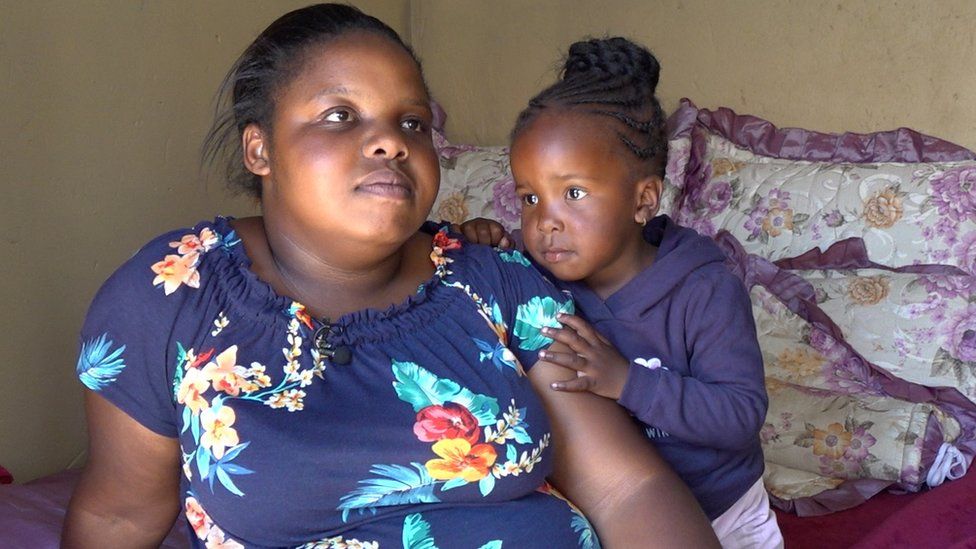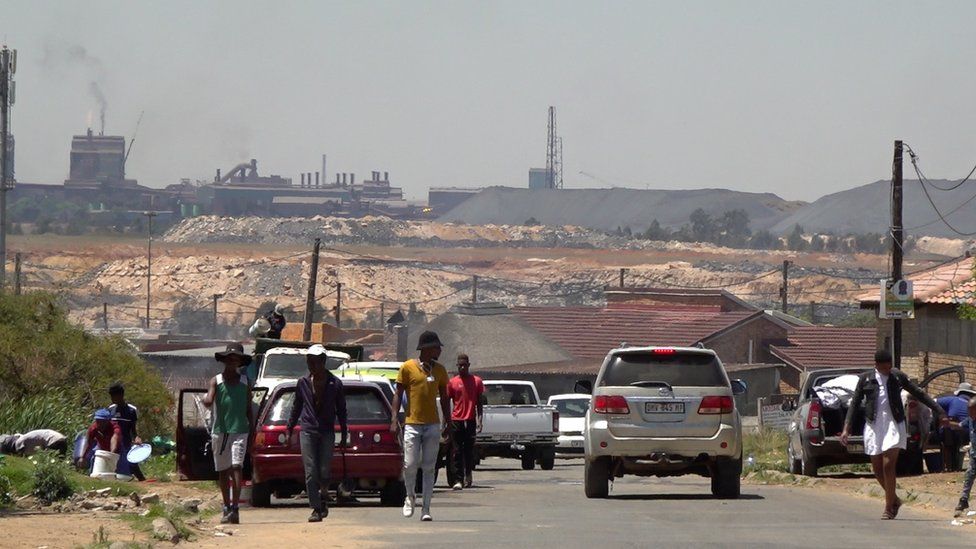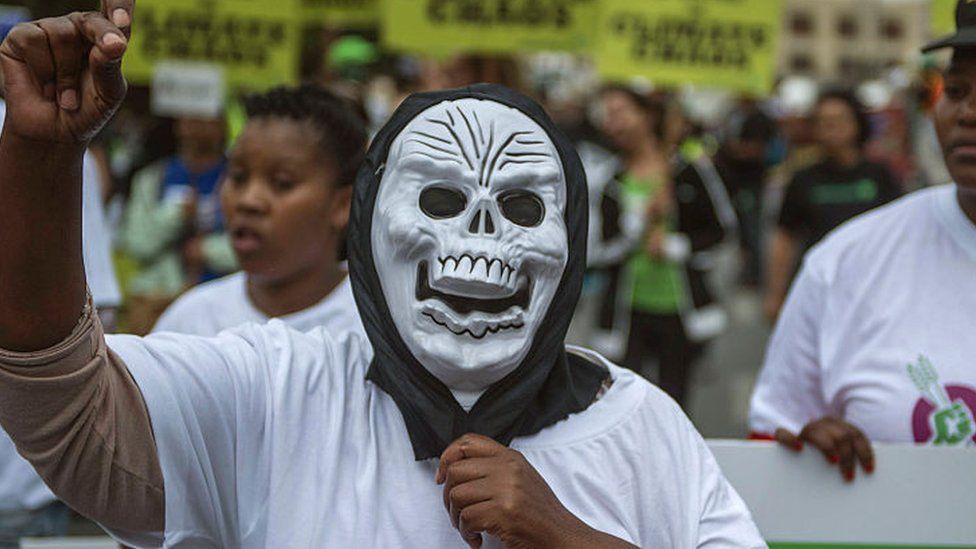South Africa is set to receive $8.5bn (£6.2bn) to help end its reliance on coal in a deal announced at the COP26 climate summit.
President Cyril Ramaphosa has called it a “watershed moment”.
The country is currently a major emitter of greenhouse gases as a result of its addiction to coal, which it uses to generate electricity.
This deal, funded by wealthier nations, could have both global and local implications.
The vast scale of the coal operation run by the country’s state power company Eskom makes South Africa the 12th biggest carbon dioxide emitter in the world, according to the Global Carbon Atlas.
Some of those at the heart of South Africa’s coal country hope that the latest deal could ease the environmental and health impacts of the power sector.
Last month, driving into Emalahleni in Mpumalanga province, I saw a thick layer of smog hanging over the town. It stretched for kilometres, a dusty putrid haze that I could smell while still in the car.
During winter the occasional stench of sulphur even reaches the country’s commercial hub Johannesburg, which is more than 100km (62 miles) away.
Emalahleni means “The Place of Coals” in the isiZulu language, and the town is where most of the country’s coal is mined.
It supplies a vast network of 12 power stations that dot the countryside of this inland province.

Even more alarming for the people of this province, according to the Centre for Research on Energy and Clean Air, is that South Africa is the world’s biggest emitter of sulphur dioxide.
Many there suffer from a host of breathing problems caused by the extreme proximity to the mines and the power stations.
Young mother of two Mbali Mathebula lives in Vosman, an Emalahleni township that sits opposite a coal mine.
‘People are sick’
She has had to quit her job to look after her children. Her eldest has severe asthma and does not go to school during the bitterly cold winter months.
“His life isn’t the same as other kids. Because even when he plays, he only goes out for a short time then he has to rest,” Ms Mathebula said.
“We have told the mines that there are houses where people are sick, they say they will come but they never do.”
Environmental activist Promise Mabilo added that people’s homes are damaged as well. “When they blast sometimes the bricks and debris fall on top of these houses,” she said.

Local government official Erald Nkabinde blames the national authorities for allowing mines to operate so close to people’s homes.
He argued that the Department of Mineral Resources allows them to be opened without consultation with the people on the ground.
“Some of these environmental authorisation applications don’t come to us, then the following day you wake up and find a mine right inside a settlement at the door step of a shack or a house,” he told the BBC.
But, on a national level, while there is a recognition of the need to end the reliance on coal, South Africa is desperate for the electricity it produces.
Currently, 80% of its power comes from coal but what it generates is still not enough to satisfy demand.
For more than a decade, South Africa has experienced periods of planned blackouts, intended to ease the pressure on the electricity grid.
The power problems have stifled economic growth in a country beset by high unemployment.
Nevertheless, even before the deal was announced at the summit in Glasgow, the government had planned to shrink coal’s contribution to the energy mix to less than 60% by 2030.
Wind and solar power were expected to provide 25% by that point.
With the money pledged by the US, UK, France, Germany and the EU, South Africa could now move much faster.
 IMAGE SOURCE,AFP
IMAGE SOURCE,AFP“It is proof that we can take ambitious climate action while increasing our energy security, creating jobs and harnessing new opportunities for investment, with support from developed economies,” President Ramaphosa said.
But like leaders elsewhere in the world who are promising new green jobs, the president is faced by powerful groups worried about their economic future if the country turns away from coal.
The mines in Mpumalanga may cause environmental problems but they provide vital jobs.
‘What about our jobs?’
The metal workers’ union cites research saying that 100,000 jobs in mining and the associated industries could be at stake.
“No social plans, as far as we know, have been developed to assist all those communities who are going to be affected by that,” National Union of Metal Workers spokesman Phakamile Hlubi told the BBC.
“If you’re not going to replace those jobs with something, you’re going to turn that entire province into a ghost town.”
This sentiment may have been at the heart of what was before COP26 seen as a slow approach taken by some in government.
Mining Minister Gwede Mantashe favoured a gradual change, urging people not to be “emotional” about demanding transition.
But now the 2050 deadline to close most of the country’s coal plants can be brought forward.
When I called her up in Emalahleni, activist Ms Mabilo was excited to hear the news from Glasgow.
But she sounded a word of caution, saying local people now needed to be consulted.
“As communities, as environmental activists, we need to be part and parcel of the whole process so that we can all benefit from the transition,” she said.



No comments:
Post a Comment
Note: only a member of this blog may post a comment.